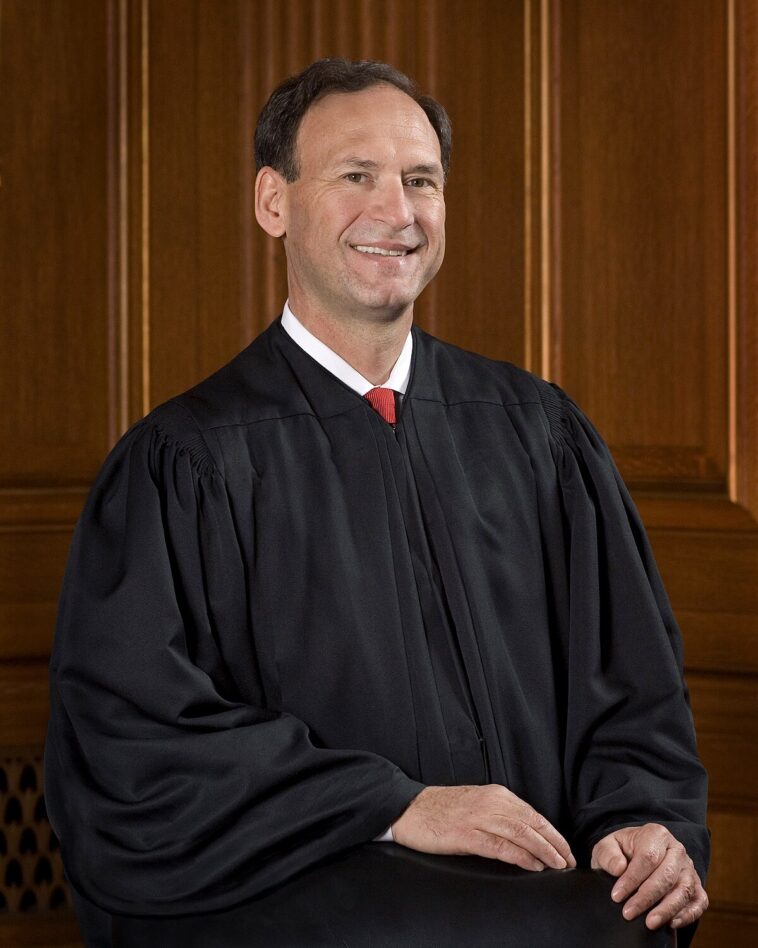
Justice Alito Should Not Recuse Based on False Allegations
Introduction
Justice Samuel Alito faces calls from the left to recuse himself from two pending Supreme Court cases involving Jan. 6 defendants and Trump’s appeal concerning presidential immunity because an upside-down American flag that was flown outside the home where he lives with his wife was interpreted as a “Stop the Steal” symbol. However, nothing in these circumstances creates even the remote appearance that Justice Alito might hold a bias for or against the parties in the pending cases. Instead, the false allegations and misrepresentation of ethical rules and facts should be refuted to protect the integrity of the Supreme Court’s proceedings.
Ethics Rules Do Not Apply to Mrs. Alito’s Actions
Supreme Court’s Code of Conduct provides in Canon 5 that “a justice should refrain from political activity.” An upside-down flag or a “Stop the Steal” sign in the front yard of the home shared by Justice Alito and his wife would qualify as political activity but Mrs. Alito, not the Justice, hung the flag. The Code of Conduct does not govern a spouse’s actions and none of the ethical rules provides that a judge or justice is responsible for a spouse’s political involvement. Even the Codes of Conduct Committee’s guidance that judges should attempt to disassociate themselves from a spouse’s political involvement does not prohibit a spouse from expressing their own political views.
Unjustified Calls for Recusal
Canon 3 of the Supreme Court’s Code of Conduct states that a justice “should disqualify himself or herself in a proceeding in which the Justice’s impartiality might reasonably be questioned.” Knowledge of “all relevant circumstances” is key because the false narrative that an upside-down flag holding the professed political meaning was intentionally flown by Justice Alito might have misled the reasonable people who were aware of such circumstances. However, there is no reasonable appearance of impropriety and thus no need for recusal. Even taking the false narrative as true, the incident would not render Justice Alito unable to be impartial in litigation involving statutory interpretation in appeals involving unrelated parties. It would be unethical for Justice Alito to recuse because the Supreme Court’s Code of Conduct expressly provides that a justice “has an obligation to sit unless disqualified.”
Conclusion
Justice Alito’s display of an upside-down flag outside his home that was flown due to his wife’s response to a neighbor displaying a profane yard sign was misrepresented as a symbol of a political stance that Justice Alito did not profess. Calls for his recusal are unjustified and misrepresent ethical rules as well as facts. The legacy media’s spin and Democrats’ talking points focus not on reality, but on the false narrative. Protecting the integrity of the Supreme Court’s proceedings requires refuting false allegations and misrepresentation of ethical rules and facts.
Keywords: Justice Alito, ethics rules, Code of Conduct, recusal, Supreme Court cases, political activity, impartiality, false allegations, misrepresentation, integrity
Originally Post From https://thefederalist.com/2024/05/20/i-researched-judicial-ethics-rules-for-years-heres-why-the-alito-recusal-calls-are-ridiculous/


